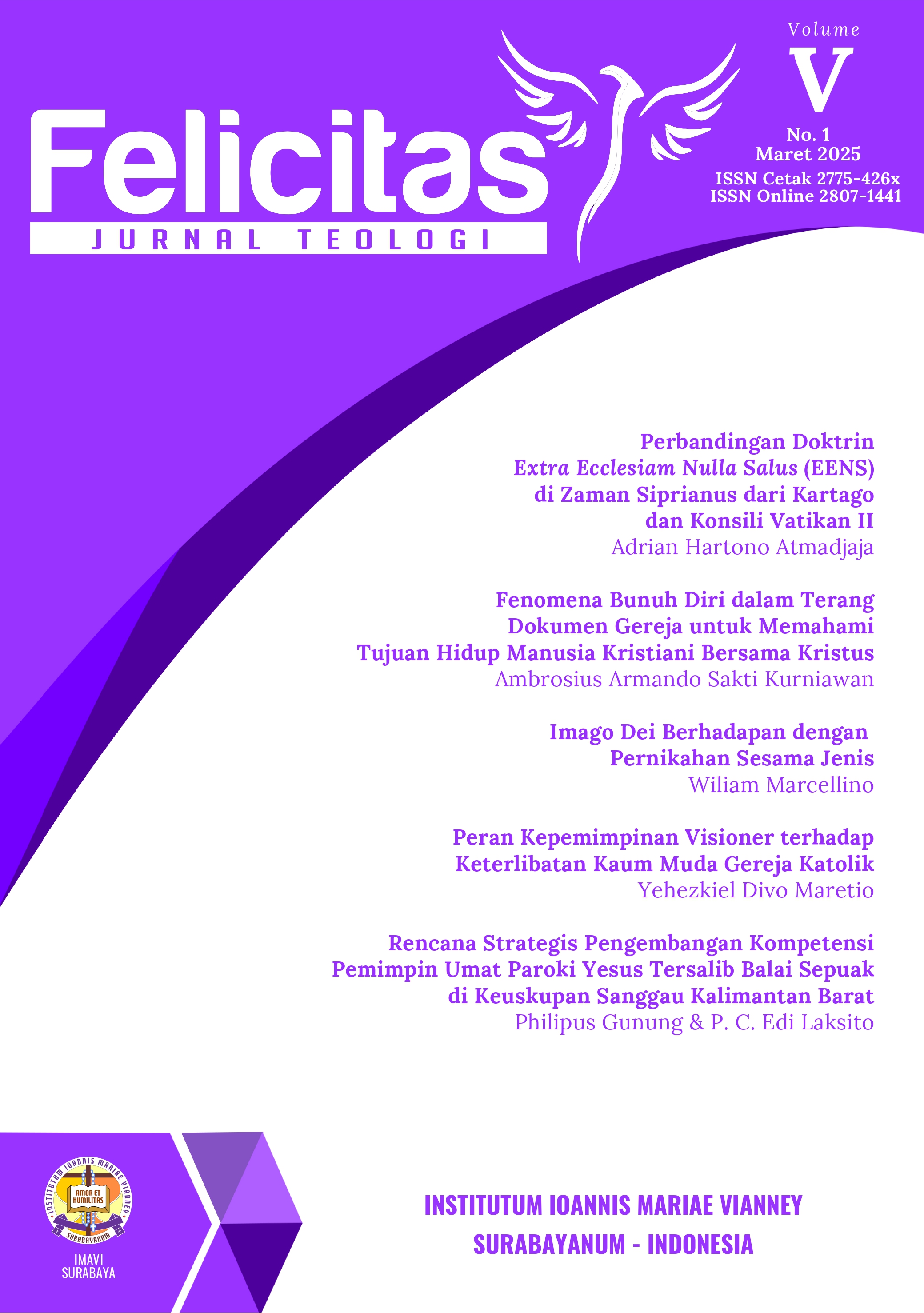Perbandingan Doktrin Extra Ecclesiam Nulla Salus (EENS) di Zaman Siprianus dari Kartago dan Konsili Vatikan II
DOI:
https://doi.org/10.57079/feli.v5i1.148Kata Kunci:
Extra Ecclesiam Nulla Salus, Cyprian, Second Vatican Council, salvation, interreligious dialogueAbstrak
The doctrine Extra Ecclesiam Nulla Salus (EENS), meaning “outside the Church there is no salvation,” has been a central tenet of Catholic theology and a source of theological debate throughout history. This paper addresses the research question: how has the understanding of EENS developed from the time of Cyprian of Carthage to the Second Vatican Council? The purpose of this study is to analyze the historical and theological contexts of EENS in both periods and explore its contemporary pastoral implications. The discussion reveals that in the third century, Cyprian emphasized EENS as a response to internal schisms threatening Church unity, especially during Roman persecutions. Conversely, the Second Vatican Council offered a more inclusive interpretation of salvation. While reaffirming Christ and the Church as necessary for salvation, the Council acknowledged the possibility of salvation for those outside the Catholic Church who sincerely seek God. The conclusion affirms that EENS today should not be understood as exclusivist, but rather as a theological invitation for the Church to proclaim God's love through interreligious dialogue and openness to religious diversity.
Unduhan
Diterbitkan
Terbitan
Bagian
Lisensi
Hak Cipta (c) 2025 Adrian Hartono Atmadjaja

Artikel ini berlisensi Creative Commons Attribution 4.0 International License.










